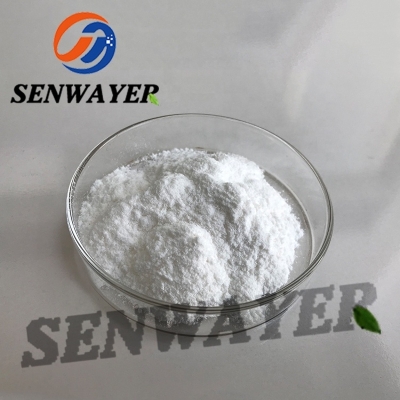The number of overseas applications in China increased by 15% year on year, and pharmaceutical companies actively distributed the market
-
Last Update: 2018-12-21
-
Source: Internet
-
Author: User
Search more information of high quality chemicals, good prices and reliable suppliers, visit
www.echemi.com
Recently, WIPO released the annual report of world intellectual property index (WIPI) The report shows that both domestic and foreign enterprises are actively submitting applications in China in order to obtain better intellectual property protection and promote the use of intellectual property in China Data shows that in 2017, U.S applicants submitted 230093100 equivalent applications overseas, continuing to maintain the status of "big brother" in the world; Chinese applicants submitted 603100000 equivalent applications overseas, an increase of 15% over last year, ranking fifth in the world From the growth of the number of applications submitted overseas, we can see that China pays more and more attention to the awareness of intellectual property protection, and enterprises submit applications in order to expand in the target country market WIPO director general Francis Gao Rui said, "in just a few decades, China has established an intellectual property system from scratch, encouraging local innovation and joining the ranks of global intellectual property rights." It is reported that in 2017, China's overseas application products involved in communication, medicine and many other fields Taking the pharmaceutical industry as an example, the increase of its overseas applications is inseparable from the domestic environment, policies and other aspects For drug manufacturers, application can protect the company's products Because of the high cost, high risk and great difficulty, application is also a way to prevent others from stealing research results In the past, China's independent innovation and R & D capacity were weak, because there was almost no awareness of intellectual property rights, which led to the phenomenon of plagiarism and counterfeiting, which was very unfavorable for pharmaceutical enterprises and patients With the unfairness and chaos in the pharmaceutical market, Chinese pharmaceutical companies are beginning to realize the importance of intellectual property It is understood that China's first law was promulgated in 1985, when drugs were not entitled It was not until 1992 that drug applications were allowed in China After years of development, China's pharmaceutical industry has made remarkable progress At the same time, protection can make the research and development of pharmaceutical enterprises sustainable, protect their technology and encourage innovation of pharmaceutical enterprises Since 2018, China has encouraged the research and development of innovative drugs and held an open policy for overseas clinical trial data of drugs Many domestic powerful pharmaceutical enterprises have seized the opportunity to make overseas layout, expand the market by acquiring and innovating original pharmaceutical research enterprises, or by licensing the introduction of overseas innovative drugs in research varieties For example, many pharmaceutical enterprises, such as Tianshili, Changbu pharmaceutical, Haizheng pharmaceutical and Enhua pharmaceutical, have introduced overseas original research and innovation drug varieties through licensing According to the industry, pharmaceutical policies have led enterprises to transform and develop Pharmaceutical enterprises are no longer limited to the traditional development mode in the past, but to the drugs that really help to treat diseases This trend will be more obvious in the future In addition, in recent years, with the introduction of a series of favorable policies for Chinese medicine and the development of Chinese medicine technology, domestic pharmaceutical enterprises are no longer limited to introducing technology from abroad, but are trying to "go out" Some pharmaceutical companies with technological capabilities began to commercialize their intellectual property rights by licensing overseas For example, in 2017, Baiji Shenzhou was awarded the distribution by celgene, which can sell Abraxane albumin paclitaxel, rifume (lenalidomide capsule) and vidasa (azacytidine for injection) in China The cooperation with Xinji has laid a foundation for the company's commercial tumor product line and sales channel.
This article is an English version of an article which is originally in the Chinese language on echemi.com and is provided for information purposes only.
This website makes no representation or warranty of any kind, either expressed or implied, as to the accuracy, completeness ownership or reliability of
the article or any translations thereof. If you have any concerns or complaints relating to the article, please send an email, providing a detailed
description of the concern or complaint, to
service@echemi.com. A staff member will contact you within 5 working days. Once verified, infringing content
will be removed immediately.







